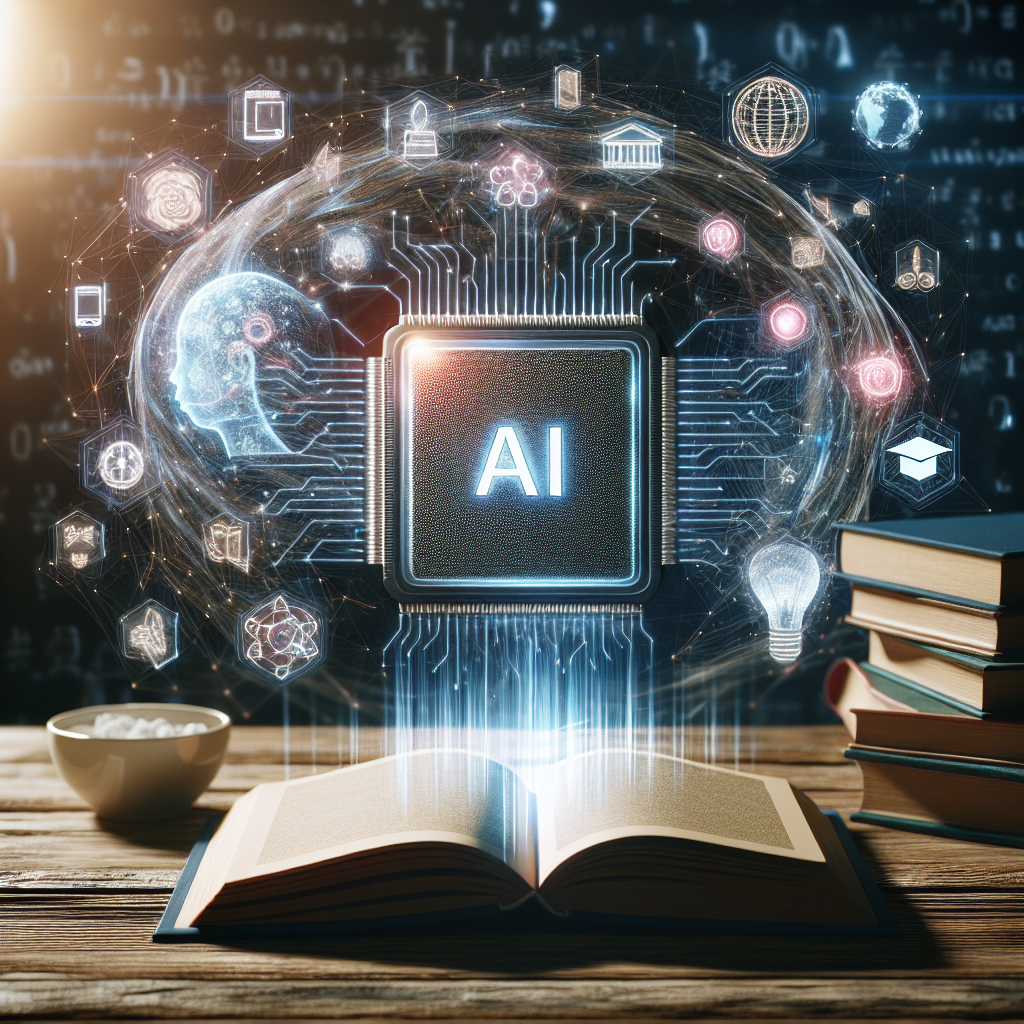Generative AI in Education: Personalizing Learning Experiences
Artificial Intelligence (AI) has been transforming various industries, and education is no exception. Generative AI, a subset of AI that focuses on creating new content, has the potential to revolutionize the way students learn by personalizing their learning experiences. This technology can provide students with tailored learning materials, feedback, and support, ultimately helping them achieve better educational outcomes.
Generative AI works by using algorithms to generate new content, such as text, images, or videos, based on patterns and data it has been trained on. In the context of education, this technology can be used to create personalized learning materials for students, such as quizzes, exercises, and study guides. It can also be used to provide real-time feedback on students’ performance, identify areas where they may need additional support, and even offer customized learning pathways based on their individual strengths and weaknesses.
One of the key advantages of generative AI in education is its ability to adapt to each student’s unique learning style and pace. Traditional, one-size-fits-all educational approaches often fail to cater to the diverse needs and preferences of students. Generative AI, on the other hand, can analyze students’ learning patterns and preferences to create personalized learning experiences that are more engaging and effective. This can help students stay motivated and focused, leading to better learning outcomes.
Another benefit of generative AI in education is its ability to provide students with instant feedback and support. By analyzing students’ responses to quizzes and exercises in real time, generative AI can offer immediate feedback on their performance and suggest ways to improve. This can help students learn more efficiently and address any misunderstandings or gaps in their knowledge before they become bigger problems.
Generative AI can also help educators by automating some of the more time-consuming and repetitive tasks involved in teaching. For example, it can generate quizzes and exercises based on the learning objectives of a lesson, saving teachers valuable time that can be better spent on providing personalized support to students. It can also help teachers track students’ progress and identify areas where they may need additional help, allowing them to intervene early and prevent students from falling behind.
One of the challenges of using generative AI in education is ensuring that the content it generates is accurate, relevant, and engaging. Educators and curriculum developers will need to work closely with AI experts to ensure that the algorithms are trained on high-quality data and are capable of generating content that meets educational standards. They will also need to continuously monitor and evaluate the performance of the AI system to ensure that it is providing students with the support and feedback they need to succeed.
Despite these challenges, the potential benefits of generative AI in education are significant. By personalizing learning experiences, providing instant feedback, and automating repetitive tasks, this technology has the potential to transform the way students learn and educators teach. As the technology continues to evolve and improve, we can expect to see more schools and educational institutions incorporating generative AI into their teaching practices to provide students with a more personalized and effective learning experience.
FAQs:
Q: How does generative AI personalize learning experiences for students?
A: Generative AI analyzes students’ learning patterns and preferences to create personalized learning materials, feedback, and support. It can adapt to each student’s unique learning style and pace, providing them with tailored learning experiences that are more engaging and effective.
Q: Can generative AI provide instant feedback to students?
A: Yes, generative AI can analyze students’ responses to quizzes and exercises in real time to offer immediate feedback on their performance. This can help students learn more efficiently and address any misunderstandings or gaps in their knowledge before they become bigger problems.
Q: How can generative AI help educators?
A: Generative AI can automate some of the more time-consuming and repetitive tasks involved in teaching, such as generating quizzes and exercises. It can also help teachers track students’ progress and identify areas where they may need additional help, allowing them to intervene early and prevent students from falling behind.
Q: What are the challenges of using generative AI in education?
A: One of the challenges is ensuring that the content generated by generative AI is accurate, relevant, and engaging. Educators and curriculum developers will need to work closely with AI experts to train the algorithms on high-quality data and continuously monitor their performance to ensure they meet educational standards.

